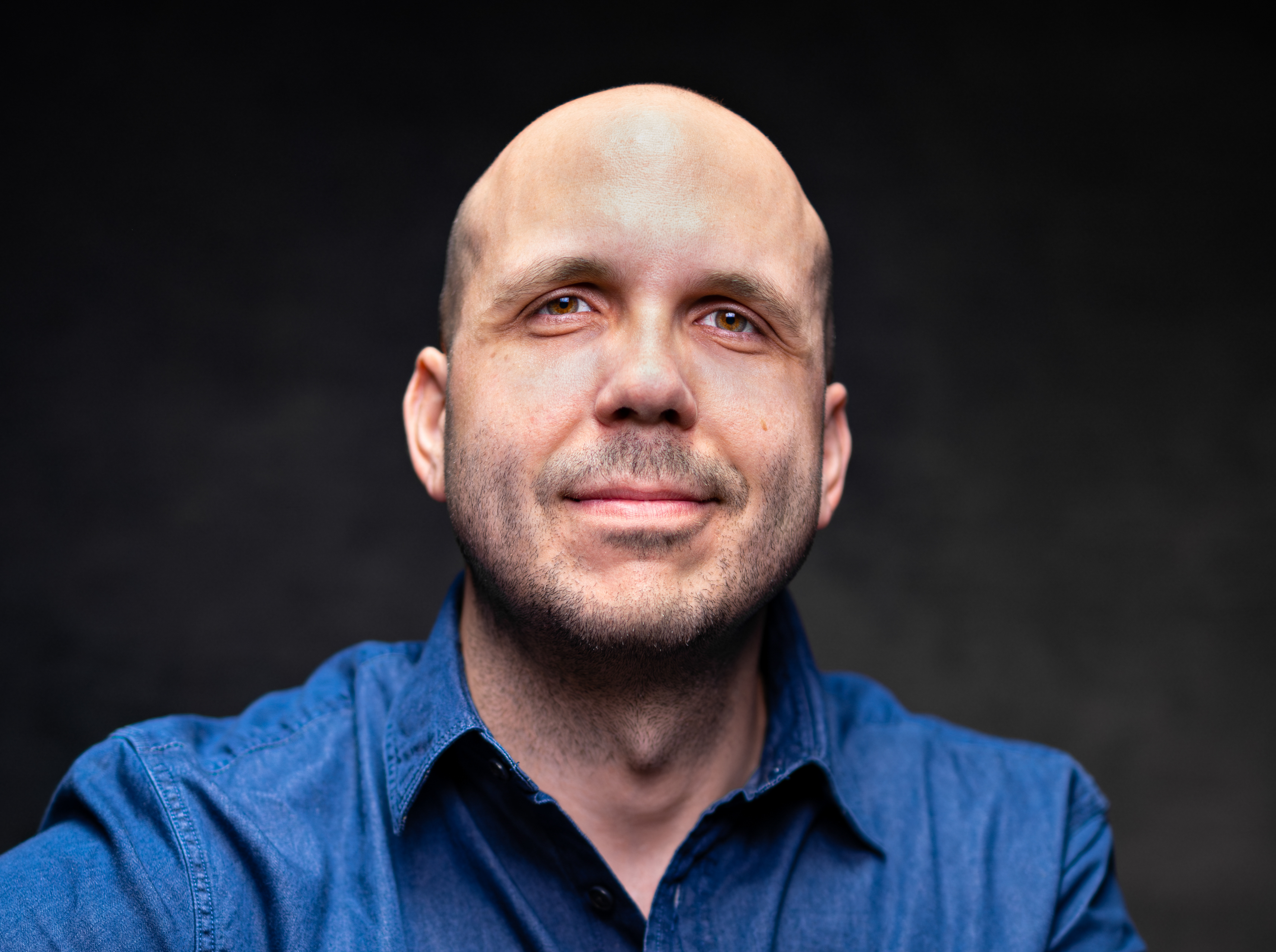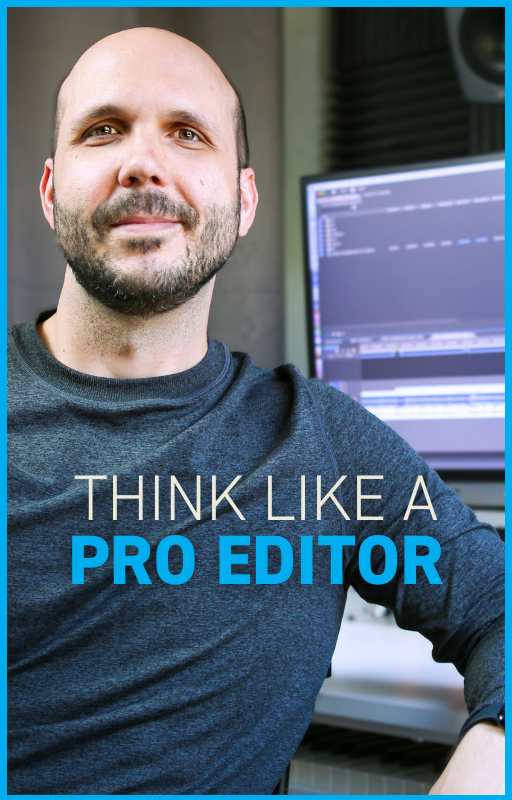5 Things I Wish I Knew as a Young Video Editor
Jan 19, 2025I turned 40 recently, and I’ve been a pro editor since the age of 19, so I’ve been at this for quite some time. I thought I’d mark this milestone by sharing five things I wish I knew earlier as a young video editor in hopes it’ll help you on your journey. Watch the video above for the full lesson.
Tip 1
Do you ever feel like your work is pretty solid, but you’re not getting much traction?
Early in my career, I was putting in a lot of effort, taking every editing gig I could get my hands on—working day and night. I thought, “I’m an editor. Everyone who needs an editor should hire me.”
Fast forward a couple of years with this mindset. One day I go to put together my demo reel and it’s just all over the place. I have some short montages I did for one client, some talking-head corporate videos I did for another, a couple of commercials (one comedy, one serious), a short documentary, and even clips from a feature documentary. You get the idea. I was stumped on what to include. So I take my collection of editing clips to my mentor and ask what I should do.
The advice I got was simple—only show your best stuff, and double-down on what you’re good at. Turns out that my best stuff was the narrative commercials. The weakest stuff was probably the montages. And I personally didn’t really want to edit another feature documentary. So I decided to only show the short narrative work because it’s what I was best at, it’s what I liked most, and it’s what people were hiring me for. It was scary because it meant turning down other work, but looking back it was a great decision that helped define my career. If you’re in a similar position, I want to give you permission to double-down on what’s working best, and to say no to the rest.
There’s a lot of talk on YouTube about finding a niche, and I think there’s some good wisdom in that when it comes to editing. Just because you’re an editor doesn’t mean you can or should edit anything—you might excel at narrative films, or perhaps beauty montages, or documentaries. People want to collaborate with specialists because that often means they’re really, really good at that one thing.
Tip 2
I had decided to only put the best stuff on my reel, and to not chase every editing job. So then everything went smoothly, right? Wrong.
I had a new problem. There were aspects of my work that weren’t living up to my taste. For certain budget levels, editors are required to do it all—color grading, graphic design, and motion-graphics. And as much as I tried, they didn’t come natural. Graphic design and motion-graphics were a particular struggle for me.
Then I started editing more commercials, and as the budgets got higher, my job as editor became more specialized. Suddenly, I was just the editor. And there was a specialist for the motion-graphics, a specialist for the color grade, and a specialist for the sound mix. Not only was I not having to do the aspects of editing that didn’t come natural to me, but these collaborators were at the top of their games and the overall finished products were so much better.
I realized that I wanted to hone in on editing and sound design, my two strengths. I’d have a working knowledge of the rest (yes, I still occasionally do my own color and sound mixing), but when I have the choice, I always choose to be on a team.
It’s tough to figure these things out when you’re young. Partly it's because you just need to try a bunch of things and stick with them long enough to see what you’re good at. Moreover, it takes self-awareness to look at your strengths and weaknesses, which is really hard when you’re young. This is another situation where having a trusted mentor to guide you can really help.
Now I realize I was fortunate to be in a position where there was a budget for a talented team, but even before that I would bring on collaborators by bartering ("Hey, I’ll edit this for you if you do some motion-graphics for me" or, "I’ll do some sound design for your project if you do my color grade"). There’s really no excuse to not get out there and start collaborating. Filmmaking is a collaborative art form after all.
TIp 3
Okay, this is a tough one. There is a skill that is required for great editing that is not only one of the most difficult things to do as an editor, but it’s one of the most difficult things to do as a human…
At this point, I’m a few years into my career, I’m targeting editing jobs that suit me best, and now I’m outsourcing the parts of editing that I’m weaker at. But there’s still something that is exceedingly hard for me—getting feedback.
For a long time, getting feedback was the hardest part of my job. Be honest: when your work is critiqued do you take it personally? I did. I would dread receiving feedback on my work.
At some point (much later than I care to admit) I decided I needed a mindset shift. If I didn’t learn to like feedback, I was going to remain stressed and unhappy. So I adopted a phrase that’s used in improv comedy: “Yes and…” The rule in improv is that you never say “no” because it stops the scene. Instead you say “Yes and” meaning, you move forward and even add to it. I started making this a habit and eventually feedback became fun. Not only was I saying yes, but I was adding my own creativity and ideas, which really helped. Now I can honestly say that feedback and creative collaboration is one of my favorite parts of the process. For your sake, the sooner you embrace this, the better.
Tip 4
Here’s one that would’ve saved me so much time and frustration. It took me about four years of very hard work from when I made my first edit to when things really started to click for me. And it wasn’t from reading books (though that helped), it wasn’t from studying classic cinema (though that helped, too), and it wasn’t even from taking my first few classes at film school.
Editing clicked for me when I found a mentor who was a real pro editor. I knew I wanted to be an editor, but I had never seen a pro editor work. Finding someone who was willing to take the time to show me the behind-the-scenes on real-world editing projects was life-changing, and is largely what inspired me to create this channel.
But I will add one caveat: don’t just find a mentor, find the right mentor. Make sure you like their editing and make sure you like their teaching style. Let me use an analogy. A lot of you have probably taken music lessons at some point in your life. Let’s say you wanted to learn rock guitar to play songs in your band. What would be more effective—hiring a jazz guitarist who teaches you to read music? Or a rock guitar player who teaches you to play songs by ear? It’s the latter. Find an editing mentor who has an editing style you like and a teaching style you like.
Tip 5
If there’s one reason I’ve been able to make it this far in my career, it’s not because I’m the most talented editor—in fact, I’m sure I’m not. And there were plenty of times when I felt like giving up (and times I actually did take an extended break from editing). But there’s one thing I did that made all the difference. It’s not glamorous, but my last piece of advice is to keep going and don’t give up.
Have you ever heard the quote, “Winners are just losers who didn’t quit”? That basically defines my career. I’ve had so many ups and downs along the way, but I just kept at it. I want to encourage you that if you decide to stick to this editing thing, you will eventually get to where you want to be.

Austen is an ADDY award-winning film & commercial editor with over 20 years of experience. He has worked with global brands like Meta, KPMG, SAP, and Christianity Today. His PSA work has championed causes like school safety (with Matthew McConaughey), driving safety, and anti-tobacco. A thought leader in the editing field, his online lessons quickly amassed over 100K views after launch.

